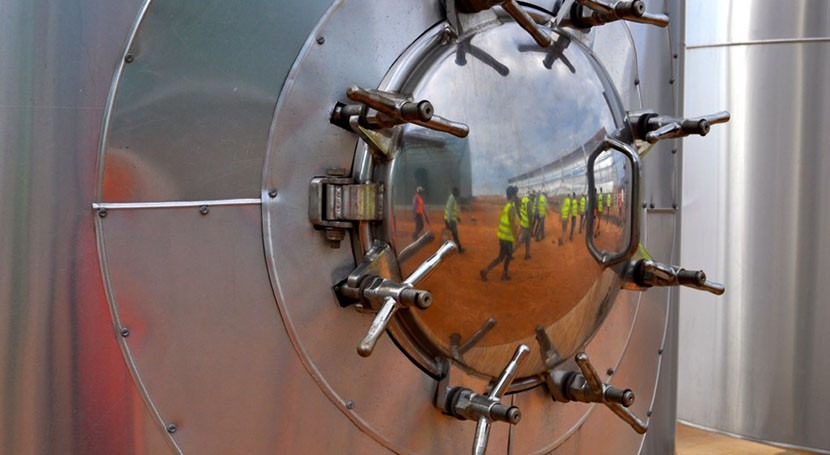Saudi Arabia is making a significant leap forward in its commitment to sustainability and innovation with the construction of the Jubail 3B Independent Water Project (IWP). This state-of-the-art desalination plant, located 65 kilometers north of Dammam, is a pivotal element in the Kingdom’s Vision 2030 initiative. Vision 2030 is aimed at ensuring long-term, sustainable, and secure water resources for Saudi Arabia’s rapidly growing population.
A Strategic Partnership for Progress
The Jubail 3B IWP is being developed under a public-private partnership (PPP) framework. A consortium, led by France’s Engie Group, is working alongside Saudi-based companies Nesma Co. and Ajlan & Bros. The project is commissioned by the Saudi Water Partnership Company (SWPC), which is responsible for overseeing the plant’s development and operations.
- Water Production Capacity: The plant is set to produce an impressive 570,000 cubic meters of potable water per day, which will significantly alleviate water shortages in the Riyadh and Qassim regions.
- Completion Date: The project is slated for completion by 2024, helping to meet the increasing water demand as the country continues to grow.
- Cost-Effectiveness: The winning bid from the consortium includes a remarkably low tariff of SAR 1.59 ($0.42) per cubic meter of potable water, ensuring the project’s long-term financial sustainability.
Innovative Technology for a Sustainable Future
The Jubail 3B project showcases advanced reverse osmosis desalination technology, which offers several advantages over traditional thermal desalination methods.
- Energy Efficiency: Reverse osmosis is significantly more energy-efficient, helping to reduce the plant’s environmental impact.
- Solar Integration: The plant will feature a 61 MW solar power facility, the largest of its kind in Saudi Arabia. This solar energy will power the desalination process, decreasing the reliance on fossil fuels and aligning with Saudi Arabia’s national goals to reduce carbon emissions and achieve net-zero emissions by 2060.
Khaled Z. AlQureshi, CEO of SWPC, commented:
“The Jubail 3B IWP plant is a game-changer in securing reliable water supplies while advancing our sustainability objectives in line with Vision 2030. Its use of renewable energy underscores our dedication to reducing carbon emissions.”
Economic and Social Impact
Beyond its technological innovations, the Jubail 3B project has significant socio-economic benefits for Saudi Arabia.
- Job Creation: The plant is set to contribute to the local economy by providing numerous job opportunities for Saudi nationals. With a target of achieving 90% Saudization, the project will help foster skill development and professional growth within the Kingdom.
- Economic Growth: The development of the Jubail 3B plant supports broader economic expansion by enhancing infrastructure and reducing dependency on imported water.
Philippe Lambert, CEO of Jubail 3B, shared:
“This project is crucial not only for addressing the Kingdom’s growing water demand but also for stimulating local employment and economic prosperity.”
Vision 2030 in Action
As Saudi Arabia confronts rapid urbanization and economic growth, the demand for water continues to rise. The Jubail 3B IWP represents an essential part of the country’s efforts to ensure sustainable water solutions.
- Desalination as a Key Solution: Desalination is becoming an increasingly vital strategy for managing water scarcity. With its advanced technology and environmentally friendly energy solutions, Jubail 3B is setting a precedent for sustainable water solutions in the region.
- Future-Proofing Water Supply: Jubail 3B serves as a model for future projects, demonstrating how technology, innovation, and strategic partnerships can secure water resources for future generations.
Turki Al Shehri, CEO of Engie in Saudi Arabia, remarked:
“For over three decades, Engie has been a leader in developing independent power and water projects in the Gulf. The Jubail 3B project further reinforces our dedication to supporting the Kingdom’s Vision with sustainable, cutting-edge solutions.”
Challenges and Opportunities for Growth
While the Jubail 3B IWP is a significant milestone, desalination projects often come with challenges. Key considerations include:
- Environmental Concerns: Desalination can lead to environmental issues such as brine disposal, which can affect marine ecosystems.
- High Energy Consumption: Desalination processes can be energy-intensive, which makes the integration of renewable energy even more critical to reducing the environmental footprint.
However, the use of solar energy and advanced reverse osmosis technology in Jubail 3B addresses these challenges, paving the way for future projects to adopt similar eco-friendly solutions.
Conclusion: A Beacon of Innovation and Progress
The Jubail 3B Independent Water Project stands as a testament to Saudi Arabia’s ability to combine growth with environmental stewardship. By leveraging innovative technologies, sustainable energy, and strategic partnerships, the project exemplifies the nation’s commitment to its Vision 2030 goals.
The plant will not only help meet the Kingdom’s growing water demands but also drive economic development, enhance local employment, and reduce environmental impacts. As Saudi Arabia continues to push forward on its journey toward sustainability, the Jubail 3B IWP will be a shining example of progress, innovation, and collaboration.
Key Benefits of the Jubail 3B IWP:
- Strategic water production: 570,000 cubic meters per day.
- Cost-efficient: Low water tariff of SAR 1.59 ($0.42) per cubic meter.
- Sustainability: Integration of 61 MW solar power.
- Job creation: Focus on 90% Saudization for employment.
- Innovation: Use of energy-efficient reverse osmosis technology.
As Saudi Arabia moves toward a more sustainable future, the Jubail 3B IWP project is sure to serve as an influential model for both regional and global desalination efforts.
https://gulfmagazine.co/bahrains-bourse-trends-and-investment-insights/



